Shows
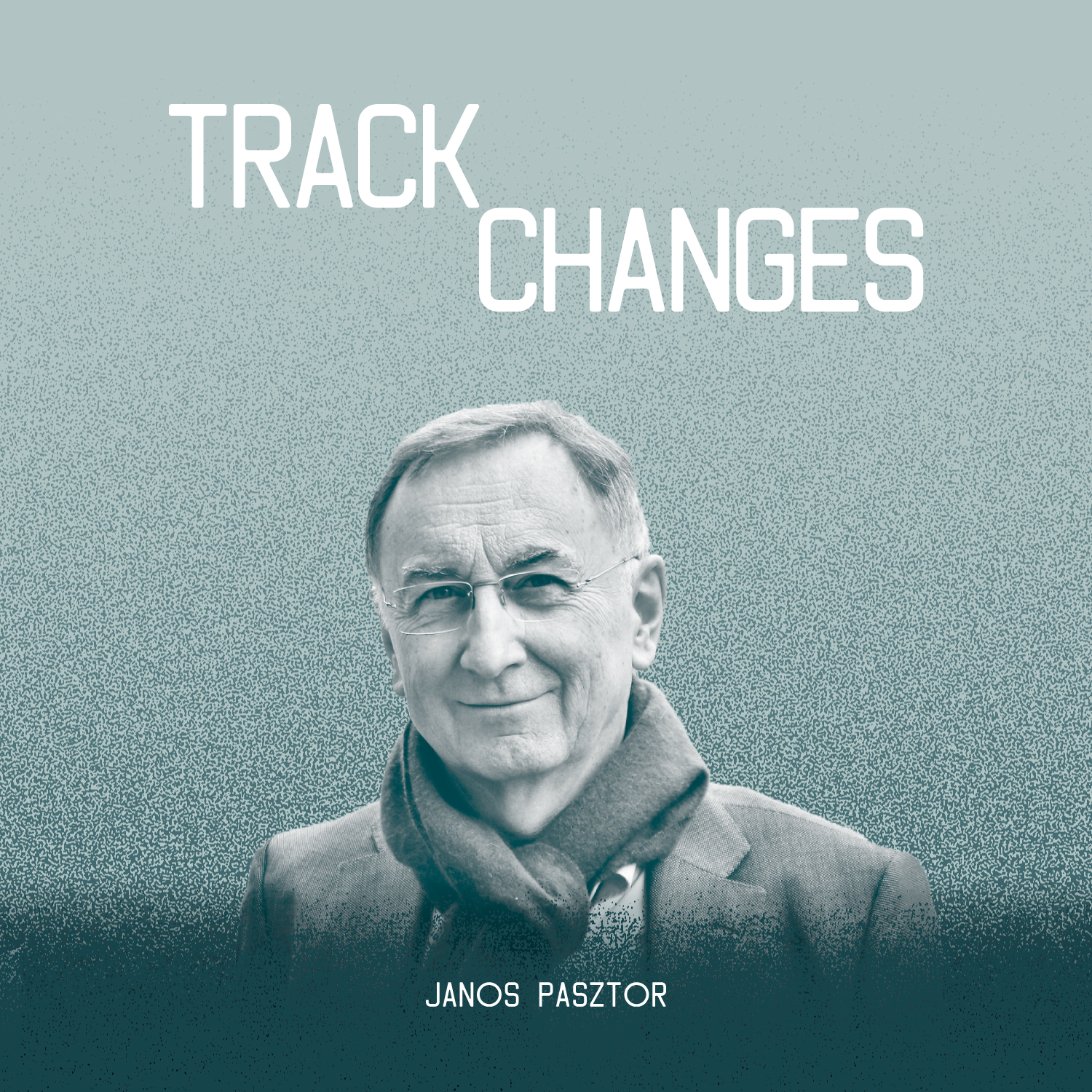
TRACK CHANGES - chats with climate change and sustainability expertsGeoengineering through solar radiation modification - a last chance option?There is no doubt that we have the means and the knowledge to rapidly decarbonise, reach net zero, and become net negative. But success is not guaranteed. If we falter over the coming years, could geoengineering through solar radiation modification be a last chance option? Might we reach the point where we need to cool the planet, to give us a bit more breathing space while we decarbonise? Is it possible, or is it too dangerous? Would it undermine efforts to rapidly decarbonise? Would the benefits outweigh the risks, taking into account the harm already being done d...
2024-12-1856 min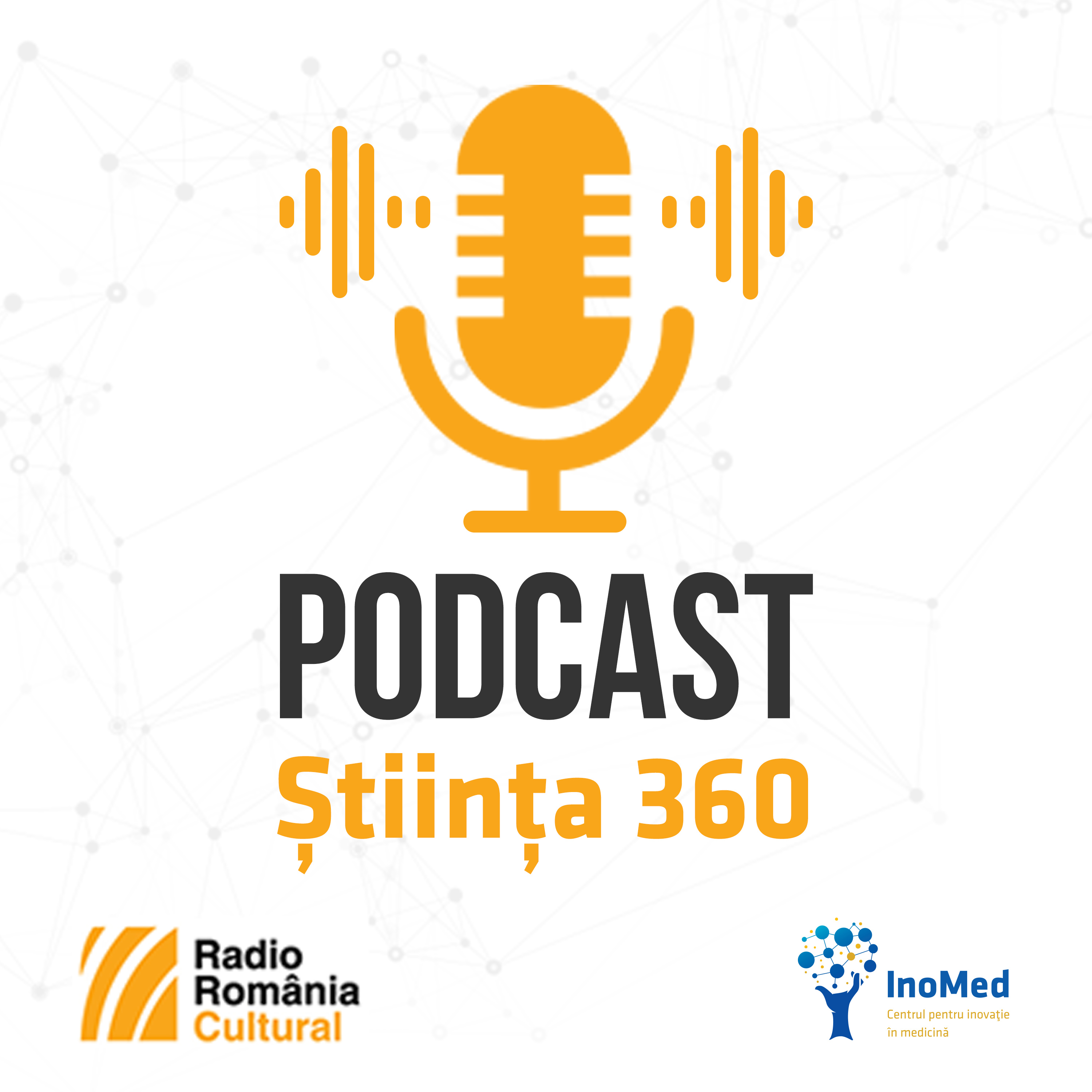
Podcastul Raportuldegardă.roScreening Cancer Gastric, noile Recomandări UE | Dr. Marius Geantă | #știința360În cadrul ediției de pe 14 noiembrie 2023 a emisiunii #știința360 de pe Radio România Cultural, Dr. Marius Geantă, Președintele Centrului pentru Inovație în Medicină, a comentat cele mai recente noutăți din domeniul medical publicate pe Raportuldegardă.ro. Puteți asculta emisiunea live, în fiecare marți, ora 14:00.
Odată cu includerea cancerului gastric drept nouă localizare în programele de screening oncologic, recomandările Consiliului Uniunii Europene prevăd testarea pentru depistarea Helicobacter pylori și supravegherea leziunilor gastrice precanceroase în zonele cu incidență mare a cancerului gastric și cu rate mari ale mortalității.
Cu toate că în majorit...
2023-11-1624 min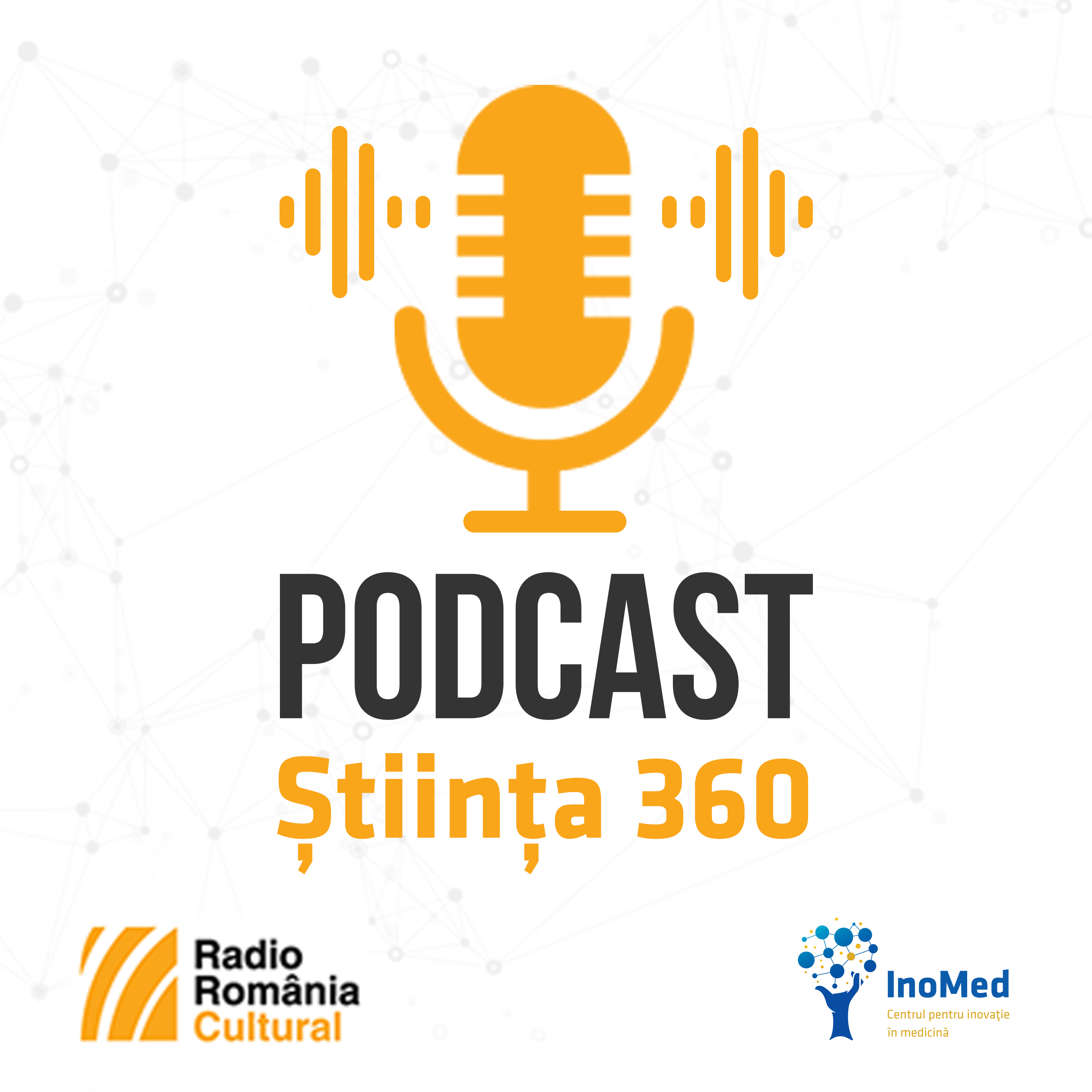
Podcastul Raportuldegardă.roScreening Cancer Colorectal, noile Recomandări UE | Dr. Marius Geantă | #știința360În cadrul ediției de pe 24 octombrie 2023 a emisiunii #știința360 de pe Radio România Cultural, Dr. Marius Geantă, Președintele Centrului pentru Inovație în Medicină, a comentat cele mai recente noutăți din domeniul medical publicate pe Raportuldegardă.ro. Puteți asculta emisiunea live, în fiecare marți, ora 14:00.
Noile recomandări ale Uniunii Europene cu privire la cancerul colorectal prevăd triajul persoanelor cu vârsta cuprinsă între 50 și 74 de ani prin testul imunochimic fecal (FIT) pentru selectarea celor care necesită investigații ulterioare prin endoscopie sau colonoscopie.
La fel ca în cazul cancerului de sân...
2023-10-2631 min
Vacílate Esto PodcastVACÍLATE ESTO: Videojuego que te acusa de ladrónSabemos muchos cuentos de gente que sapea, pero jamás habíamos escuchado algo como esto: un videojuego que si lo usas pirata, te hace vivir una experiencia terrorífica.
Cuéntanos en los comentarios si sabes de algún otro con estas características
#Viedeojuego #Pirata #Gamer #Gaming #CrashTeamRacing
2023-08-2601 min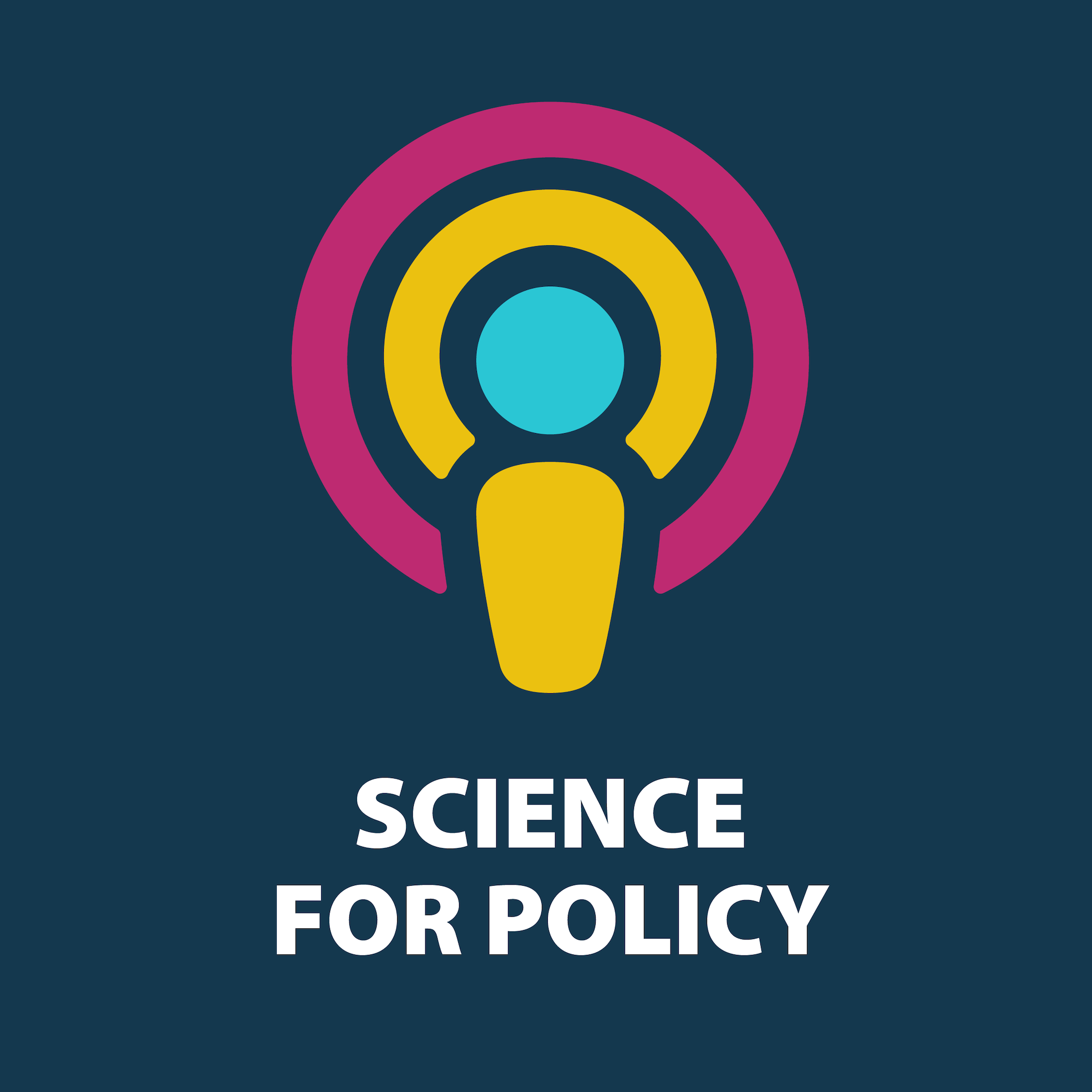
Science for PolicyEleni Zika on curiosity-driven research and its contribution to policyMost of Europe's colossal Horizon research funding programme is laser-focused on strategic objectives set by policymakers. But one Horizon-funded institution, the European Research Council, breaks the mould: its grants are awarded on the basis of excellence alone, and as Dr Eleni Zika explains, they are proud to deliberately ignore questions such as the usefulness of science to policy or society.
Why, then, has the ERC recently set up its own 'feedback to policy' unit, which would seem to go against its stated mission? Toby Wardman of SAPEA investigates.
2023-07-0335 min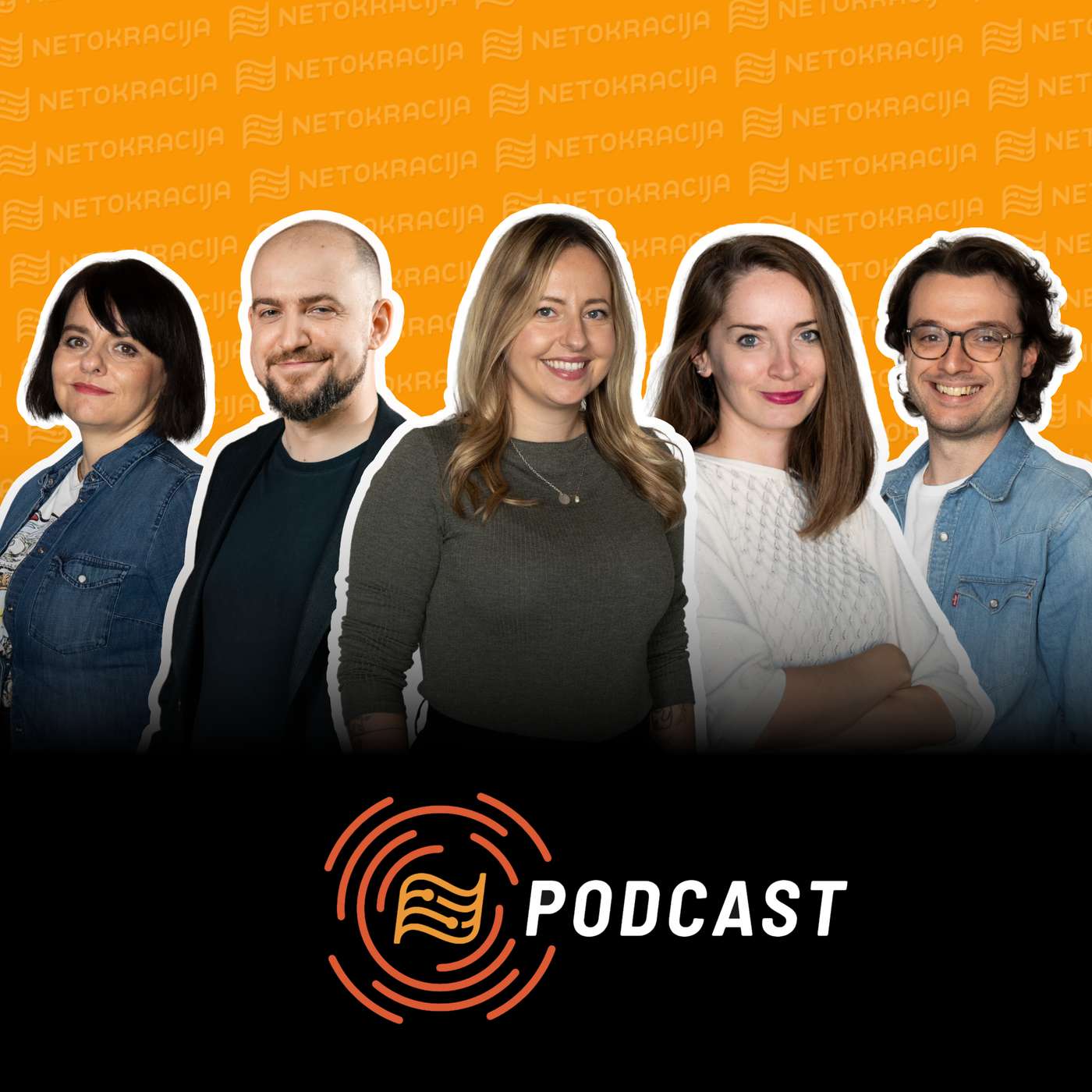
Netokracija PodcastSAD zabranjuje TikTok, a Facebook i Instagram odlaze iz EU. Ili ne?Što stoji iza najava da bi SAD mogle zabraniti korištenje TikToka? I kakve to veze ima s EU i najavama da bi građani EU mogli ostati bez Facebooka i Instagrama? U ovoj epizodi raspravljamo o sukobu društvenih mreža i politike te prikupljanju i korištenju podataka korisnika: kako SAD s jedne strane ne želi da se podaci američkih građana prikupljaju i spremaju u Kini, ali traži da američke tvrtke poput Mete i Googlea mogu podatke građana EU prikupljati i spremati u SAD.00:00 Kome je točno zabranjeno ima...
2023-03-1326 min
Science for PolicyBarbara Prainsack on ethics advice in a crisisWe live in an age of crisis — and the crises that we face are more numerous, more widespread and more overlapping than ever before. In the chaos of high-pressure, life-and-death policymaking, politicians could benefit not just from scientific advice but also from the input of ethicists. That's where Barbara Prainsack, chair of the European Group on Ethics and New Technologies, comes into the picture.
Resources mentioned in this episode
Statement on values in times of crisis: https://research-and-innovation.ec.europa.eu/document/1690e112-9826-4ede-811b-fad63167b9d9_en (available from 22 November)
Evidence review report and...
2022-11-2144 min
Science for PolicyRémi Quirion on the languages of global science adviceThe emergence of English as the dominant international language of science has some significant downsides. One is the impact this has on science advice, where non-English-speaking countries risk finding themselves behind the curve in terms of both scholarship and practical applications.
As part of his presidency of the International Network for Governmental Science Advice, Professor Rémi Quirion of Québec has made it his mission to broaden our linguistic outlook. In this joint episode co-published with INGSA, he talks to Toby Wardman of SAPEA about the role of global networks in reaching not only national governments, but also regions, cit...
2022-09-2633 min
INGSA HorizonsBONUS: Rémi Quirion on the languages of global science advice - Science for Policy PodcastIn a special, bonus episode we bring you the latest discussion from the Science for Policy Podcast. If you are interested in the science/policy/society interfaces then we recommend you check out their extensive back-catalogue of episodes! Find out more at www.sapea.info and thanks to the Science for Policy podcast for sharing their chat with INGSA President, Prof Remi Quirion on the languages of global science advice. For more from the INGSA Horizons Podcast visit: https://ingsa.org/podcast
2022-09-2634 min
Science for PolicyJanusz Bujnicki on developing science advice in PolandFrom Brussels to Warsaw, Professor Janusz Bujnicki is helping to shape the future of scientific advice. In this episode, he compares his experiences advising the European Commission with current efforts to develop more high-level science advice mechanisms in his home country of Poland. With Toby Wardman of SAPEA, he discusses the value of transparency versus discretion, the distinction between policy-for-science and science-for-policy, and how to make mistakes gracefully as part of the learning process.
2022-09-1241 min
Science for PolicyLieve Van Woensel on foresightForesight methodology helps science advisors check their blindspots, recognise their biases, and figure out the second- and third-order ripple effects of even the most innocuous of policy interventions. And Dr Lieve Van Woensel of the European Parliament, who talks to SAPEA's Toby Wardman in this episode, quite literally wrote the book on foresight.
Resources mentioned in this episode
A bias radar for responsible policymaking, by Lieve Van Woensel. https://lievevanwoensel.com/
European Parliament Guidelines for foresight-based policy analysis: https://www.europarl.europa.eu/thinktank/en/document/EPRS_STU(2021)690031
2022-08-0141 min
Science for PolicyPeter Jackson and Marta Rivera Ferre on social sciences and framingWhile the natural sciences try to quantify and describe the natural world, the role of the social sciences is to understand people — including their many different attitudes, values and worldviews. This perspective is complex, but it is vital for policymakers, since policy directly engages with people. And, as Professors Peter Jackson and Marta Rivera Ferre argue, the way you frame a question can lead to radically different answers — even though different framings are equally valid. How does science advice help to meet these challenges?
Resources mentioned in this episode
Evidence Review Report and Scientific Opinion on a sustainable food...
2022-07-0434 min
Science for PolicyRebecca Fitzgerald and Harry De Koning on cancer screening policyNowhere is the tension between society-wide policy and individual choice as stark as in the field of public health. Can a committee of experts, informed by scientific evidence and in consultation with stakeholders, realistically make health decisions for a whole population? How might those decisions compare to the choices of individual patients and their physicians?
Fresh from their work collecting evidence to inform screening programmes in the EU, Professors Rebecca Fitzgerald and Harry De Koning discuss the role of evidence in cancer screening policy and how it interfaces with clinical judgement and patient choice.
Resources mentioned in this episode
Evidence r...
2022-06-0640 min
Science for PolicyErin Macdonald on being Star Trek’s science advisorWhat joint challenges are faced by policy advisors and TV advisors? Why would a committed scientist make the switch from basic research to the entertainment industry? How serious is Star Trek about 'getting the science right'?
In this reissue of an episode from 2020, Dr Erin Macdonald discusses these questions with Toby Wardman of SAPEA. We also discuss the nature of gene transfer in tardigrades, whether it’s wise to step into the transporter, and how to solve the Heisenberg uncertainty principle in one easy step.
2022-03-2846 min
Science for PolicyDiana Ürge-Vorsatz on what makes the IPCC tickOn the same day this episode went live, the world-renowned IPCC published its comprehensive report on climate change impact and adaptation. Taking time out of a hectic 24-hour calendar of scientific meetings and reviews, Professor Diana Ürge-Vorsatz — one of the coordinating lead authors — sat down a week earlier with Toby Wardman of SAPEA to provide a fascinating insider insight into the workings of IPCC and the secret sauce that keeps the world's best-known scientific advice mechanism firing on all cylinders.
Resources mentioned in this episode
IPCC working group 2: https://www.ipcc.ch/working-group/wg2/
2022-02-2854 min
Funtsittavaa Podcast058 - Laadukas ja luotettava eliittimme (EQx)https://www.sapea.info/how-to-avoid-a-backlash-against-experts/
https://peritia-trust.eu/
2022-01-1804 min
Science for PolicyWho‘s afraid of epistemic diversity?In this special episode, twelve scholars of science advice discuss the challenges of incorporating a radically diverse range of perspectives into a science advice process. This conversation was recorded as part of the INGSA 2021 conference on global science advice, and is moderated by Estelle Balian.
Speakers in order of appearance
Jacopo Torriti, Professor of Energy Economics and Policy, School of the Built Environment, University of Reading
Tuula Teeri, President of the Royal Swedish Academy of Engineering Sciences, Chair of Euro-CASE
Diana Ürge-Vorsatz, Professor, Department of Environmental Sciences and Policy Central European University, member of the IPCC and member o...
2021-09-2052 min
Science for PolicyPiotr Magnuszewski and Nicole Arbour on games at the science-policy interfaceHow can policymakers really understand the nitty-gritty of a complex system and how their decisions can influence it? How can scientists get a handle on the many competing variables that policymakers must take into account alongside the scientific evidence? One idea is to throw both of them into a live simulation of the system they want to understand, and let them sink or swim.
In this episode, game designer Piotr Magnuszewski and science-policy expert Nicole Arbour chat with Toby Wardman of SAPEA to explore whether, and in what circumstances, games can be a useful form of science...
2021-08-231h 11
Science for PolicyCaroline Wagner on the internationalisation of science and policyThe world is more interconnected than ever, and global research is no exception. But when scientists work together across borders, who wins — and who, if anyone, loses? Should policymakers be concerned about 'leakage' of publicly-funded research? How is science advice impacted? And in a global knowledge community, is there any future for old-school concepts like science diplomacy?
Professor Caroline Wagner, author of 'The New Invisible College' and 'The Collaborative Era In Science', joins Toby Wardman of SAPEA to discuss the brave new world of cross-border science, and what, if anything, we can do about it.
2021-08-0956 min
Science for PolicyDavid Budtz Pedersen on measuring the impact of science adviceScience, and especially social sciences and humanities, have always had a broad range of impacts on society — impacts which are not easily measured using traditional academic indicators. And engagement with policymakers is one of the trickiest areas to pin down: even when we know it's happening, finding ways to measure and evaluate it can be difficult.
In this episode, Professor David Budtz Pedersen of Aalborg University, Copenhagen, talks to Toby Wardman of SAPEA about ways to discover, strengthen and evaluate the impact of science advice in a fragmented landscape.
==========
Resources mentioned in this episode
...
2021-06-281h 01
Science for PolicyJan Marco Müller on science advice for diplomatsHow much political appetite is there for science advice to foreign policy — and how much impact does it have? What are the differences between advising ministers and advising diplomats? What does the phrase 'science diplomacy' actually mean?
Jan Marco Müller discusses these questions with Toby Wardman of SAPEA. We also discuss how to develop advice demand as well as supply, the geopolitics of Russia's vaccine policy, and navigating centuries of accumulated jargon in the international relations sphere.
2021-05-0336 min
Science for PolicyGeorge Griffin on the science and policy of COVID vaccinationHow do the COVID vaccines work? How do we prioritise recipients? What are the major decisions facing policymakers when executing a mass vaccination campaign -- and where can science help to advise them?
George Griffin discusses these questions with Toby Wardman of SAPEA. We also discuss how to get jabs to developing countries, the origins of the anti-vax movement, and whether we should be worried about rare blood clots.
Special thanks to Rúben Castro for technical help in producing this episode.
2021-04-191h 02
Science for PolicyNatasha Gardiner on science for policy in AntarcticaHow is Antarctica governed, and why do scientists play such a key role in running it? What science advice structures exist to advise Antarctic decision-makers, and how do they function? Can the whole science-as-governance system, designed in the 1950s, survive into the 21st century?
Natasha Gardiner discusses these questions with Toby Wardman of SAPEA. We also discuss decision-making deadlock, saving seals, and how to start a new human colony on one of Saturn's moons.
Resources discussed in this episode
Scientific Committee on Antarctic Research: https://www.scar.org/policy/science-policy/
Committee for Environmental Protection: https://www...
2021-04-0544 min
Science for PolicyRoger Pielke Jr on shadow science adviceCan unofficial or self-appointed science advice structures be valuable, or are they destabilising? What responsibilities does a science advisor have when they disagree with the consensus view? What's going wrong, if anything, when a politician picks up the phone and calls their own favourite scientist for input?
Roger Pielke Jr discusses these questions with Toby Wardman of SAPEA. We also discuss the dubious wisdom of electing your commander-in-chief, asking your friend to give you brain surgery, and channeling the dark side of the force.
2021-03-2249 min
Science for PolicyTracey Brown on data modelling in policy adviceHow widespread is the use of big data in government decision-making? What questions should policymakers ask when presented with policy recommendations based on data modelling? Should opaque models based on machine-learning algorithms come with a health warning?
Tracey Brown discusses these questions with Toby Wardman of SAPEA. We also discuss spurious precision in scientific results, whether US election pollsters got it right or wrong, and the psychology of ordering wine.
Resources discussed in this episode
Sense About Science guide to data science: https://wordpress-398250-1278369.cloudwaysapps.com/wp-content/uploads/2019/06/SaS-DataScienceGuide-V8-SinglePages.pdf
2021-03-0849 min
Science for PolicyFred Fenter and Stephan Kuster on the scientific community's response to COVID-19What does the worldwide scientific community think of how science advice was used in 2020? What impact have lockdown, home-working and the race for a vaccine had on the life and work of individual scientists? Have other areas of science-related policy, such as climate change, been boosted or sidelined since COVID?
Fred Fenter and Stephan Kuster discuss these questions with Toby Wardman of SAPEA. We also discuss whether a worldwide crisis helps or hinders the cause of open access publishing, whether it has made the scientific community more connected or more disjointed, and why giving public science advice...
2021-02-2233 min
Science for PolicyPieter Duisenberg, Liesbeth Hulst and Joost Sneller on science in the Dutch parliamentThe Dutch parliament is trialling a new, radical way to take advice from scientists on every draft law that comes before it. How legally robust is it? What are the risks for scientists of getting involved in the cut and thrust of parliamentary debate, and for politicians of inviting professors to "mark their homework"?
Pieter Duisenberg, Joost Sneller and Dr Liesbeth Hulst talk to Toby Wardman of SAPEA about the new science advice mechanism in the parliament of the Netherlands. They also discuss upstream effects of downstream policy changes, the challenges of building a bridge between worlds...
2021-02-0850 min
Science for PolicyPaul Nurse, Peter Piot and Christiane Woopen on ethics and multidisciplinarityWhy is multidisciplinary science advice so difficult, and are there ways to make it easier? Should policymakers seek ethics advice as well as science advice? When there is a conflict between the values embedded in different cultural contexts, how can we navigate the conflict sensitively?
Christiane Woopen, Paul Nurse and Peter Piot discuss these questions with Toby Wardman of SAPEA. We also discuss the unique challenges of giving advice in a crisis, the relationship between ‘discovery’ and applied science, and whether Rambo would make a good government advisor.
Resources discussed in this episode
Joint statement on scie...
2021-01-2558 min
Science for PolicyMiriam Frankel on how journalists report science adviceWhat makes science journalism a tough job? How should the media handle the complexities of science advice systems, especially during a pandemic? And when science advice, political controversy and public health get tangled up together, is a journalist the right person to try and unpick them?
Miriam Frankel discusses these questions with Toby Wardman of SAPEA. We also discuss how not to accidentally amplify fringe scientists, how to coach science advisors to talk to the public, and whether non-specialist readers really care about anything beyond just black holes and dinosaurs.
Resources mentioned in this episode
The...
2021-01-1134 min
Science for PolicyFlorian Süssenguth on advising Chancellor MerkelHow does Angela Merkel’s confidential science and innovation advisory group function? When can industry stakeholders play a role in science advice, and what are the benefits and challenges when they do?
Florian Süssenguth discusses these questions with Toby Wardman of SAPEA. We also discuss the difficulty of measuring impact, science advice in the post-Merkel future, and what innovation actually means anyway.
Resources mentioned in this episode
Innovation Dialogue: https://www.acatech.de/projekt/innovationsdialog-zwischen-bundesregierung-wirtschaft-und-wissenschaft/
2020-12-2830 min
Science for PolicyErin Macdonald on being Star Trek's science advisor** Note to listeners: The version of this episode first published on Christmas Day included a minor editing error around minute 40 (a few moments of silence). A corrected version was published on 4 January. If your podcast app had downloaded the episode before that date, but you haven't yet listened to it, you may wish to delete and re-download the episode so you have the corrected version. Apologies for the inconvenience! **
What joint challenges are faced by policy advisors and TV advisors? Why would a committed scientist make the switch from basic research to the entertainment industry? How serious...
2020-12-2544 min
Science for PolicyAntonio Loprieno on the history and future of knowledgeHow is the nature of knowledge changing? What is the impact of the digital revolution on the roles of universities, academies and science advisors? Is democratisation of knowledge always a good thing?
Professor Antonio Loprieno discusses these questions with Toby Wardman of SAPEA. We also discuss how to digitally unwrap an Egyptian mummy, whether there is such a thing as objective truth, and how loudly Toby can scream when his audio is muted.
2020-12-1455 min
Science for PolicyCathrine Holst on reasons to mistrust expertsIs there a fundamental tension between democracy and expertise? How can non-experts evaluate experts? When we design science advice systems, should we prioritise independence or interdependence?
Professor Cathrine Holst discusses these questions with Toby Wardman of SAPEA. We also discuss techniques to reduce human error in science advice, how to pronounce awkward acronyms, and whether populism is the chicken or the egg.
Resources discussed in this episode
The PERITIA project on trust in expertise: https://peritia-trust.eu/
2020-11-2935 min
Science for PolicyMaria da Graça Carvalho on the origin of the European Commission’s science advice mechanismWhy does European Commission science advice work the way it does? Why did former President Juncker discontinue the standalone post of chief science advisor? Why has the EU settled on a hybrid model which combines advisors, academies and officials?
Maria da Graça Carvalho MEP discusses these questions with Toby Wardman of SAPEA. We also discuss the separate role of the Joint Research Centre, how to attract women and girls to high-salary tech jobs of the future, and whether any science can survive the entire legislative procedure.
Resources discussed in this episode
The Science Advice M...
2020-11-1637 min
Science for PolicyCary Funk on whether people trust scienceWhat does our best available evidence tell us about public trust in science and science advice? How has that evolved recently? And what's the moral of the story for science advisors, policymakers, and the people who design science advice systems?
Dr Cary Funk of Pew Research in Washington DC discusses these questions with Toby Wardman of SAPEA. We also discuss whether you can educate people into trusting you, why people give confusingly different answers to seemingly similar questions, and what ‘trust’ actually means anyway.
Resources discussed in this episode
Pew Research's study on trust in scientists: http...
2020-11-0226 min
Science for PolicyClarissa Rios Rojas on talking to policymakers about catastrophic riskIs it possible to develop a unified science of catastrophic risk? How can we convince policymakers to take risks to human existence seriously enough? How can we improve our foresight so that we can spot the next big disaster before it hits us?
Dr Clarissa Rios Rojas discusses these questions with Toby Wardman of SAPEA. We also discuss how to start a difficult conversation with a politician, whether future doomsday manuals should be stuffed into envelopes or just put online, and why being a scientist is cool.
2020-10-1926 min
Science for PolicyMark Walport on the UK's use of science advice during COVID-19Should scientists be free to speak out if they don’t like how politicians use science? Who is to blame if government policy doesn’t follow advice? Why were some countries hit harder than others by COVID in the spring, and did the quality of science advice have anything to do with it? When do scientists speak as scientists, and when are they simply ordinary citizens?
Sir Mark Walport discusses these questions with Toby Wardman of SAPEA. We also discuss the job of a chief scientific advisor, who's really in control of coronavirus (hint: it's not us), and...
2020-10-1545 min
Science for PolicyVladimír Šucha and Marta Sienkiewicz on why science advice needs to changeHow can science advice — and science in general — keep up with dramatic changes in the world? How do you build an organisation that can translate scientific results into policy solutions? What responsibilities do politicians have when they choose to ignore or override scientific advice?
Vladimír Šucha and Marta Sienkiewicz discuss these questions with Toby Wardman of SAPEA. We also discuss the nature of trust, how intimately linked scientists and politicians can safely become, and whether scientists do in fact know everything.
Resources discussed in this episode
Science for Policy handbook: https://ec.europa.eu/jrc/commun...
2020-10-0555 min
Science for PolicyBart Koelmans on communicating risk and uncertainty to policymakersDo policymakers and scientists have different understandings of "risk"? How can scientific uncertainty be pinned down and quantified? When experts disagree about the evidence, is there anything useful that the policymaker can take away from that disagreement?
Bart Koelmans discusses these questions with Toby Wardman of SAPEA. We also discuss the strength of the evidence for harm from microplastics, the limits of the natural sciences, what numerical value of probability is implied by the word "probably", and how English speakers should try to pronounce the word "Wageningen".
Bart is a professor in Aquatic Ecology and...
2020-09-2153 min
Science for PolicyRolf Heuer and Pearl Dykstra on being a chief science advisorWhat's it like to be a Chief Scientific Advisor? Why does the European Commission's Scientific Advice Mechanism use both advisors and academies? What have the advisors learned in the first five years of the mechanism's existence and what tips would they give to their successors?
Professors Rolf-Dieter Heuer and Pearl Dykstra discuss these questions with Toby Wardman of SAPEA. We also talk about making sense of disagreements science, whether the world is really losing faith in experts, and whether time travellers recently saved the world from being destroyed by a miniature black hole.
Resources discussed...
2020-09-0751 min
Science for PolicyPeter Gluckman on the worldwide response to COVID-19What has COVID-19 taught us about science advice? How have different countries responded to evolving evidence during the pandemic? Have some science advice models performed better than others in terms of public health outcomes? Can science advice really help much when evidence is partial or controversial, and decisions are needed at high speed?
Sir Peter Gluckman discusses these questions with Toby Wardman of SAPEA. We also discuss where to draw the line between evidence and democratic decision-making; whether scientists should air their disagreements in public or keep them behind closed doors; scientific hubris vs humility; and the...
2020-09-0149 min
ChoripanTourT2C25 - Blanqueamiento íntimo - InstalibeTikTok nos sapea, según USA, el blanueamiento corporal íntimo es muy importante, eso y mucho mas en un nuevo capítulo de ChoripanTour
2020-07-122h 00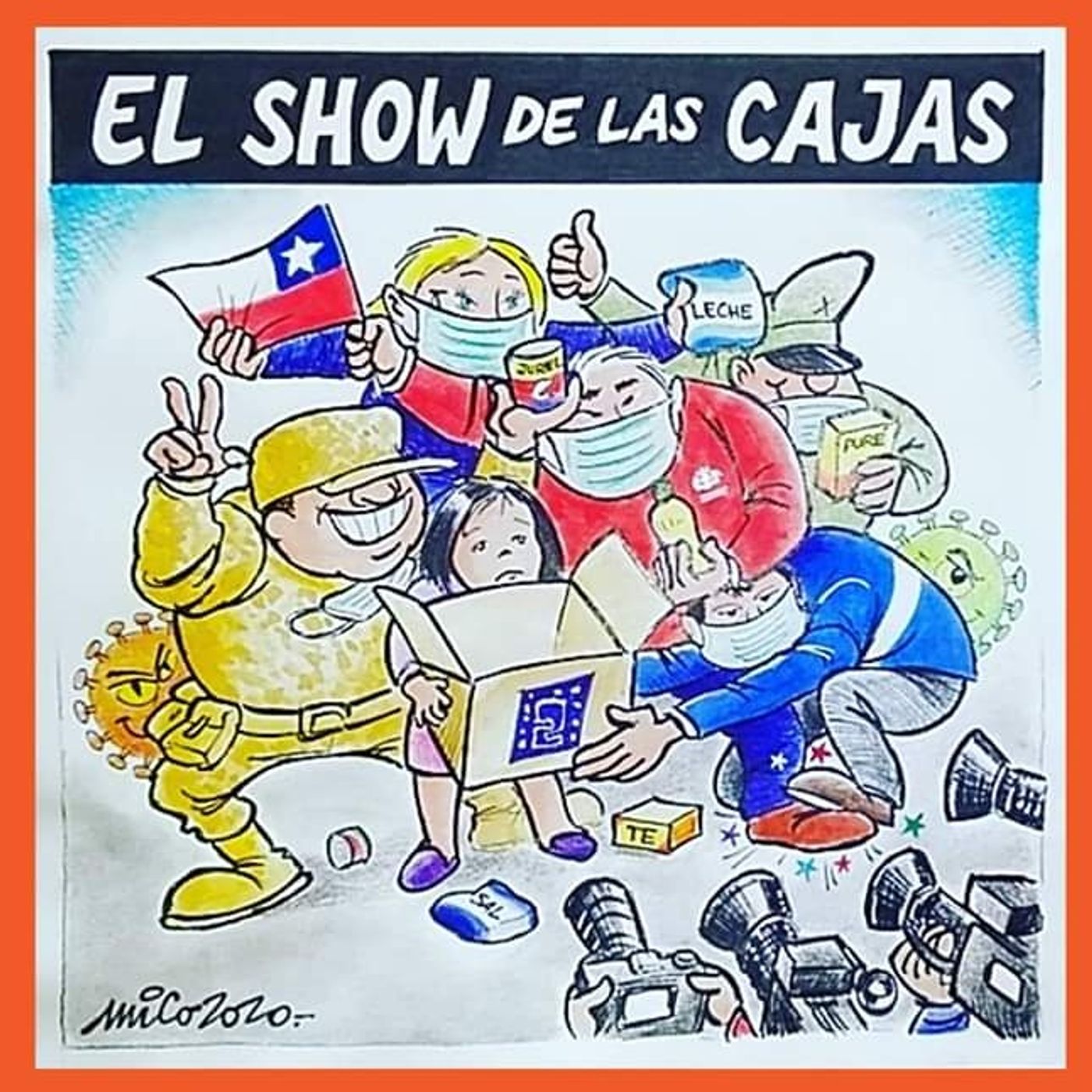
Desde La ComarcaDesde la comarca - #26Miércoles de podcast. Show de las cajas y el negociado que se hace con la pandemia. Una granada militar en una plazoleta, un gobernador que sapea desde la ventana de su oficina y Alimañalich.Pandemia, vulneración de derechos, políticos que no quieren dejar de calentar su asiento en el senado y el límite al cual han llegado los funcionarios de la salud para salvar las vidas que este gobierno manda a morir.
2020-05-281h 02